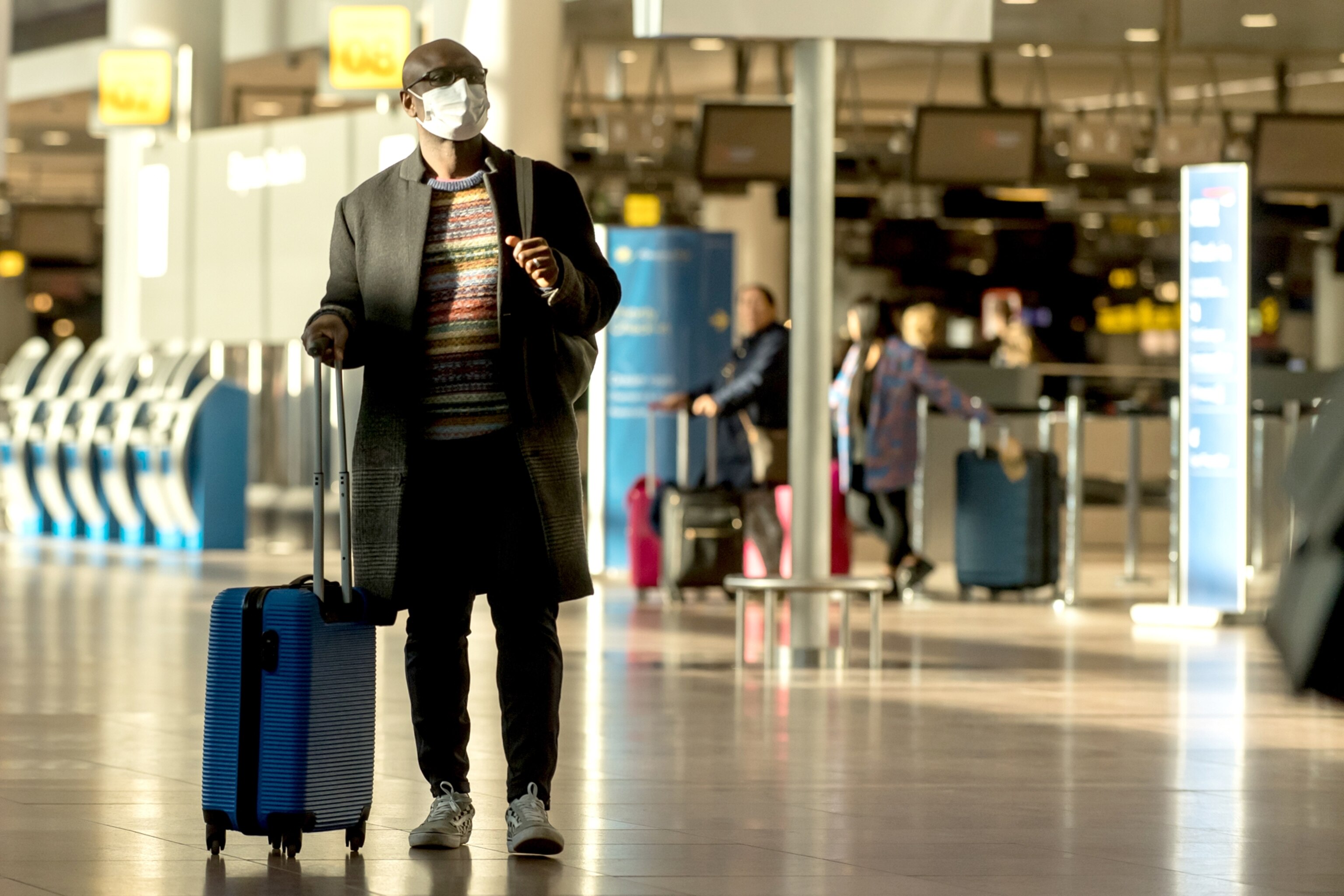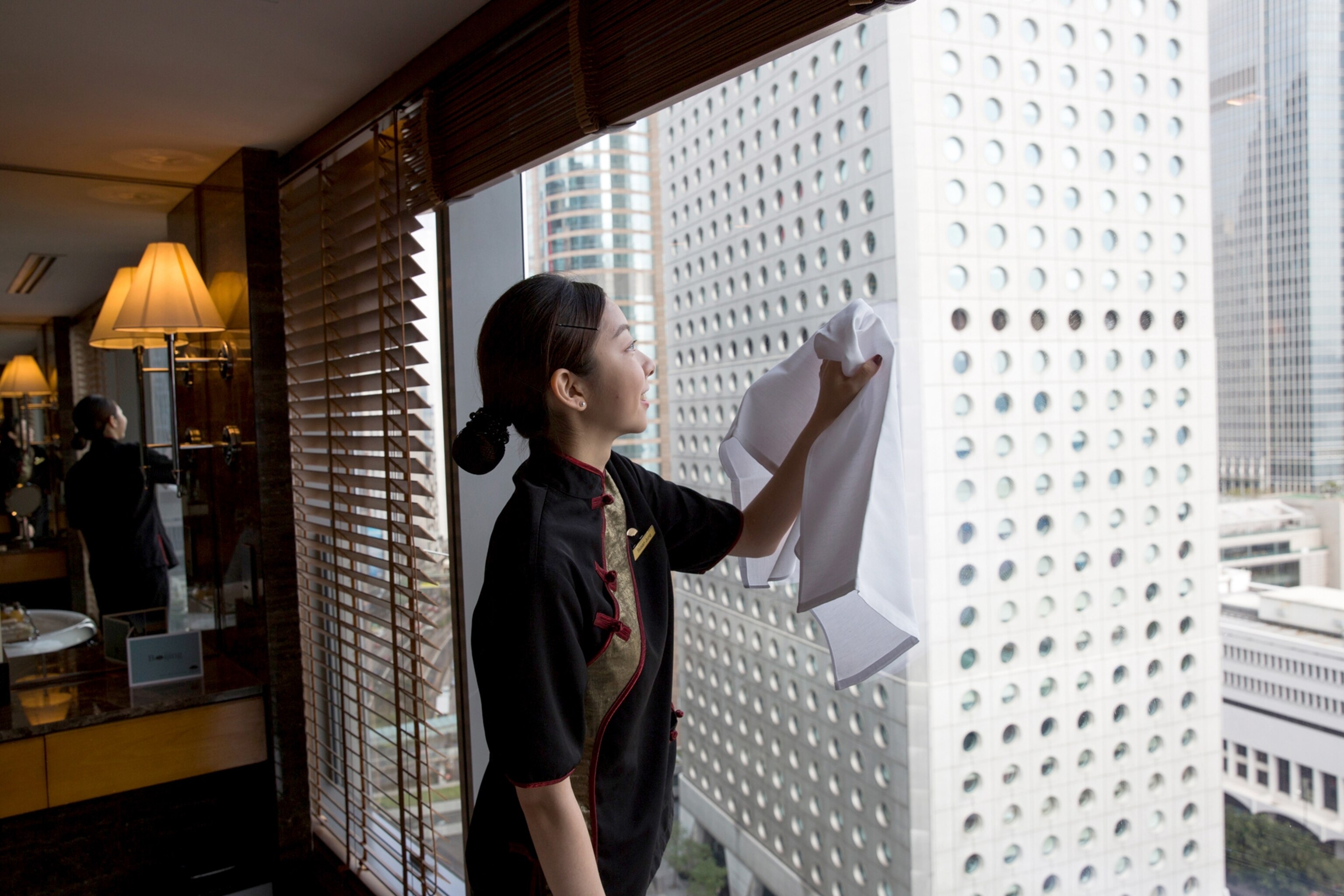
Here’s how to fight germs wherever you go
Whether you’re traveling or social distancing at home, you can minimize exposure and stay healthy.
Germs are everywhere. In the air, on plants and animals, in the soil, and on just about every surface we touch, including the human body. This catch-all term for microbes includes bacteria, viruses, fungi, protozoans, and helminths, which can cause diseases and ailments like intestinal parasites, the flu, coronaviruses, and more. Still, most germs won’t harm you, since your immune system kicks in to fight them.
But knowing your enemy—and the best ways to combat it—goes a long way toward protecting your health, whether you’re headed to Costco or Costa Rica. Most of us know the basics: washing hands with Lady Macbeth-like fervor (20 vigorous seconds, please!), avoiding touching your face, and, during viral outbreaks, perhaps donning gloves and face masks when going out in public.
(Scientists Study What to Do If You Drop a Cookie on the Floor)
Still, germs lurk in some surprising places and on mundane objects. These best practices for travelers can apply to everyday life as well as days on the road.
Don’t forget your phone
Experts say that you could unwittingly expose yourself to germs via your smartphone. “Between grabbing it and swiping on the screen, your hands are on that phone all the time,” says Chuck Gerba, professor of microbiology and immunology at the University of Arizona in Tucson. “High-touch means high likelihood of germs.”
A 2017 study published in the journal Germs looked at 27 phones owned by teenagers and found that their screens held a host of viruses and bacteria including the gut illness E. coli, skin-damaging staph infections, and strep throat. Gerba, whose nickname is “Dr. Germ,” has also tracked widespread staph infections (known as Methicillin-resistant staphylococcus aureus, or MRSA) in hospitals and pinpointed phones as their source.
Even if you think you’re diligent about keeping your phone secure, it’s a good idea to clean it—and its case—at least once daily with alcohol wipes. But not all disinfectants are safe for all phones. Apple, for example, advises against using bleach on iPhones.
Lose the shoes
In cultures from Turkey to Japan, it’s customary to remove your shoes upon (or before) entering a home or hotel room. This keeps dirt out and also minimizes the risk of bringing in germs. This is particularly important in the time of COVID-19, since the virus can linger on some surfaces for hours or days.
Gerba recommends leaving your shoes outside the house or hotel if possible, and sanitizing your kicks if you must bring them in. “We’ve done studies where we’ve put viruses on various surfaces near the doorway of a room and, within four hours, the viruses are on 80 percent of the surfaces,” he says. “When in doubt, just wipe everything down and wash your hands.”
Minimize contact points on public transit
A 2011 study in BMC Infectious Diseases found that people were six times more likely to catch a cold taking public transport to work than they were using their own cars. So, think of buses, subways, cable cars, and ferries as mobile petri dishes.
This isn’t to say travelers shouldn’t use public transit; they should just be mindful of cleanliness when they do. Obvious ways of doing this include washing hands or applying sanitizer immediately after disembarking and avoiding touching handles, seatbacks, or other surfaces.
Jason Tetro, a Canadian microbiologist and author of the book The Germ Code, suggests tying a scarf around your mouth and nose for an extra layer of protection against airborne germs. “You have to rely on barriers,” says Tetro. “Scarves and gloves work really well, so long as you’re diligent about washing them as soon as you get home.”
Related: Should you make your own face mask?

Wipe down your corner of the plane
Gerba earned his “Dr. Germ” nickname for running germ tests on hotel rooms, cruise ships, and airplanes. And on planes, his experiments turned up high concentrations of staph, norovirus, and influenza. He counsels passengers to bring sanitizing wipes and thoroughly scrub down tray tables, seatbelt buckles, armrests, head rests, and window shades.
“This generation has touched more surfaces than any generation in history,” he says, noting that ATM screens and elevator buttons in hotels can also be invisibly filthy. “About 120 years ago, we were all farmers who came into town once a month. Now we all travel a lot more, we all touch a lot more, and we all transmit germs as we do it.”
Related: This is the safest place to sit on an airplane.
Watch what you eat and drink
There has been no evidence that COVID-19 is transmitted through food or water. Other germs, especially bacteria such as giardia and norovirus, can be, which means you’ll want to stay vigilant about what you eat and drink while on the road.
If you’re traveling in a developing country or region without a reliably sanitized water system, use filtered or bottled water for drinking and brushing your teeth. But it’s relatively safe to shower or bathe with local water when you’re abroad; just don’t go swishing it around in your mouth. “Contaminated water is one of the highest sources of gastrointestinal disease throughout the world,” said Georges Benjamin, executive director of the American Public Health Association (APHA).
Travelers also should be wary of raw or uncooked foods (lettuce, unpeeled fruit, sushi), since you never know where they originated, how long they've been sitting out, or whether they’ve been washed with contaminated water.
Keep washing your hands
The reason your parents (and every news outlet on the planet) remind you to keep washing your hands? According to the U.S. Centers for Disease Control and Prevention (CDC), studies show proper handwashing can reduce the number of people who get sick with diarrhea by 23 to 40 percent and the number of people who catch respiratory illnesses by 16 to 21 percent.
“You can’t avoid germs; we’re all always running a gauntlet,” says Gerba. “Soap and hand sanitizers are the absolute best thing to get rid of them before you happen to touch your face.”
He explains that both soap and alcohol-based hand sanitizers work by breaking germs apart at the molecular level. Others say handwashing is superior to sanitizing because it enables you to clean under your fingernails, where some germs hide.
Related: Why is soap better at fighting viruses than bleach?
Ask about cleaning practices at hotels
Though the housekeeping staff at a hotel or vacation rental might work diligently, there’s no way they’ll clean every room perfectly every time. This means germs can be left behind. To feel safer, take matters into your own hands. During virus season or if you’re nervous, bring your own sanitizing wipes and use them on high-traffic areas such as bathrooms and doorways, as well as on frequently touched objects like toilet flushers, TV remotes, alarm clocks, and light switches.

A less exhausting approach might be to inquire about standards and protocols regarding cleanliness. “Before you book a hotel or a vacation rental, ask about the cleaning process,” Tetro says. “Often, the answer will give you a clear idea whether or not this is a place you want to stay.”
Embrace the space
Few people had heard of “social distancing” before the COVID-19 crisis, but epidemiologists have known about it for decades. APHA’s Benjamin refers to it as “protecting personal space,” and says that routinely staying six feet away from strangers lowers the risk you”ll catch their cold or other illness.
In a post-pandemic era, this could mean avoiding throngs at major tourist attractions, outdoor markets or festivals (visit early or late in the day or go off season) or switching seats on the subway if someone nearby is coughing. “People sometimes feel uncomfortable about saying something in situations like that,” Benjamin says. “But you are entitled to a germ-free spot, and if there’s somewhere else you can sit to protect yourself, go there immediately.”
Stay vigilant with kids
Preschool teachers jokingly refer to kids as “germ magnets,” and recent studies confirm that the more children living in your home, the higher your “virus burden.”
Benjamin says that when you are traveling, it’s practically impossible to keep kids from touching germy surfaces and shoving their dirty hands in their mouths. Instead of obsessing about the little things, he suggests that parents focus on bigger-picture issues such as washing or wiping kids’ hands frequently and educating them about the dangers germs present.
“Germs are around us all the time—that’s been the case for centuries before [the coronavirus], and it will be the case for centuries after,” he says. “Take a deep breath, wash your hands, and remember that reasonable precautions have a dramatic impact on making us safe.”